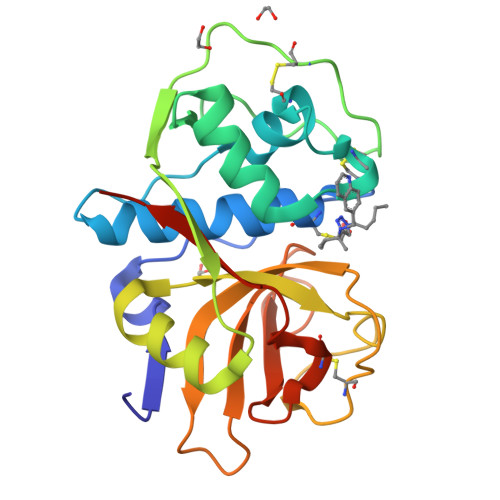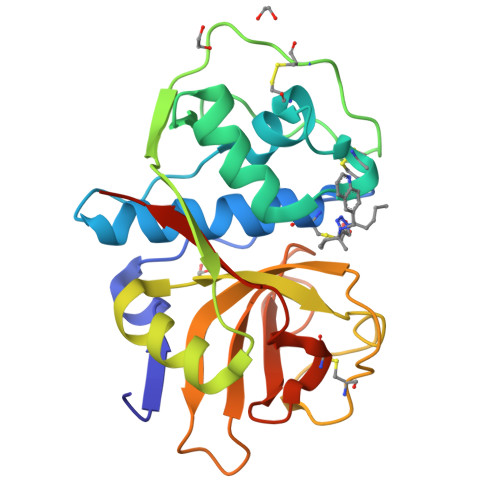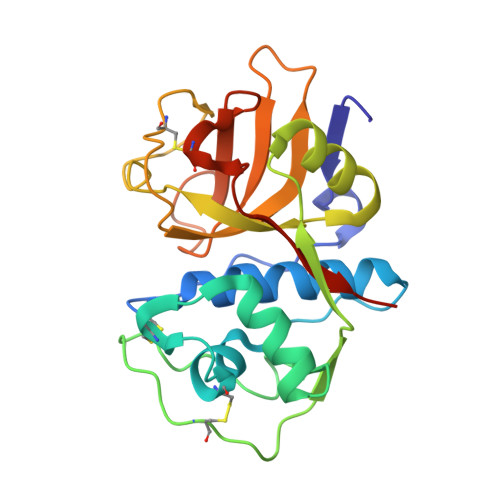Nonpeptidic tetrafluorophenoxymethyl ketone cruzain inhibitors as promising new leads for chagas disease chemotherapy.
Brak, K., Kerr, I.D., Barrett, K.T., Fuchi, N., Debnath, M., Ang, K., Engel, J.C., McKerrow, J.H., Doyle, P.S., Brinen, L.S., Ellman, J.A.(2010) J Med Chem 53: 1763-1773
- PubMed: 20088534
- DOI: https://doi.org/10.1021/jm901633v
- Primary Citation of Related Structures:
3IUT - PubMed Abstract:
A century after discovering that the Trypanosoma cruzi parasite is the etiological agent of Chagas disease, treatment is still plagued by limited efficacy, toxicity, and the emergence of drug resistance. The development of inhibitors of the major T. cruzi cysteine protease, cruzain, has been demonstrated to be a promising drug discovery avenue for this neglected disease. Here we establish that a nonpeptidic tetrafluorophenoxymethyl ketone cruzain inhibitor substantially ameliorates symptoms of acute Chagas disease in a mouse model with no apparent toxicity. A high-resolution crystal structure confirmed the mode of inhibition and revealed key binding interactions of this novel inhibitor class. Subsequent structure-guided optimization then resulted in inhibitor analogues with improvements in potency despite minimal or no additions in molecular weight. Evaluation of the analogues in cell culture showed enhanced activity. These results suggest that nonpeptidic tetrafluorophenoxymethyl ketone cruzain inhibitors have the potential to fulfill the urgent need for improved Chagas disease chemotherapy.
Organizational Affiliation:
Department of Chemistry, University of California, Berkeley, California 94720-1460, USA.




















